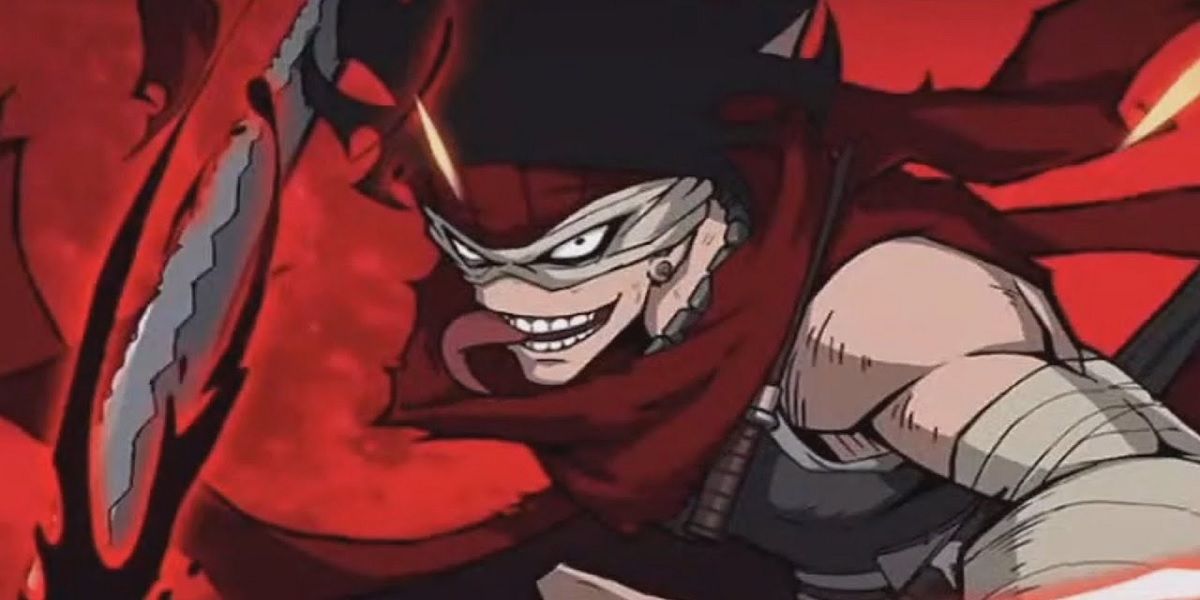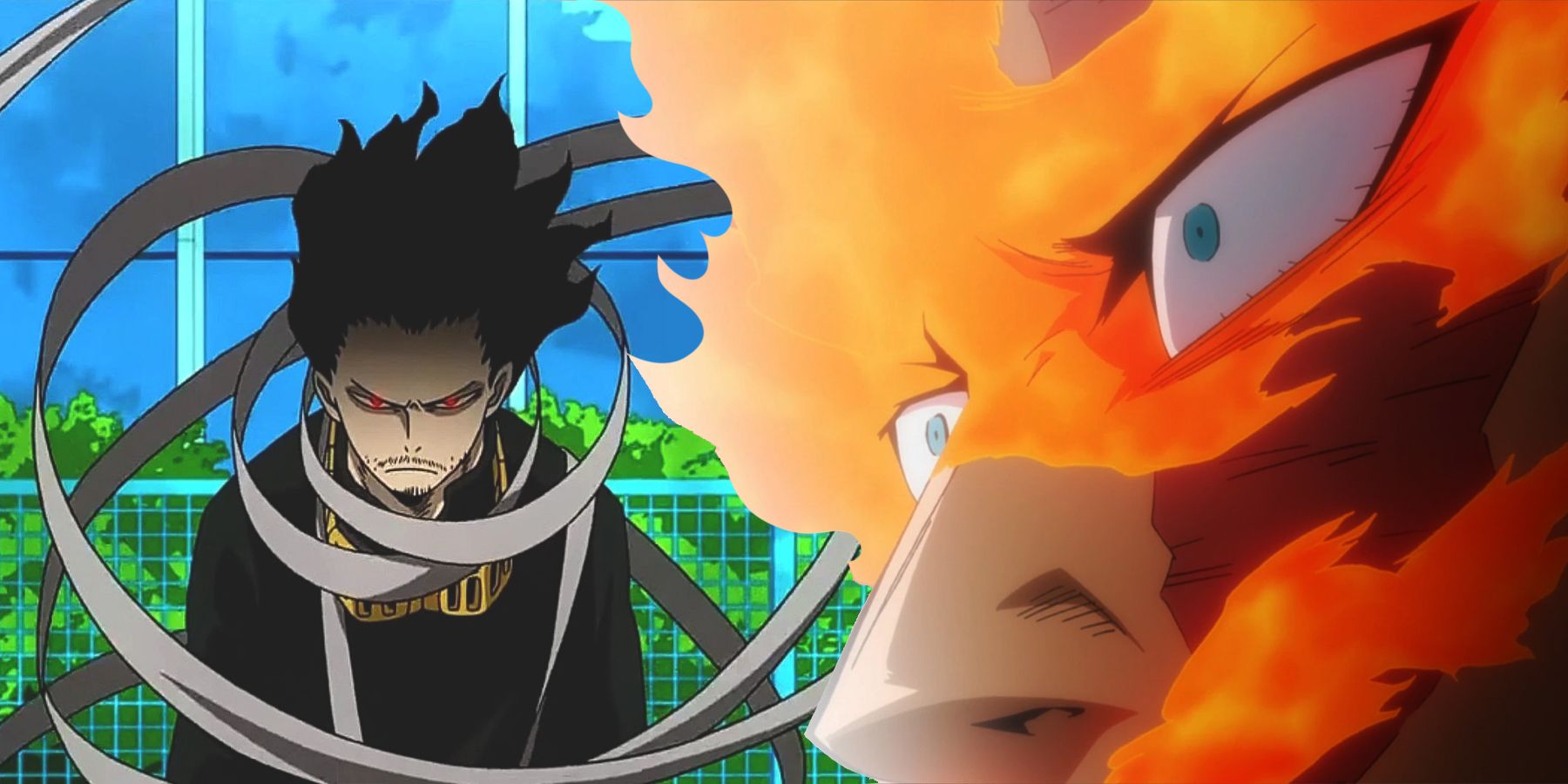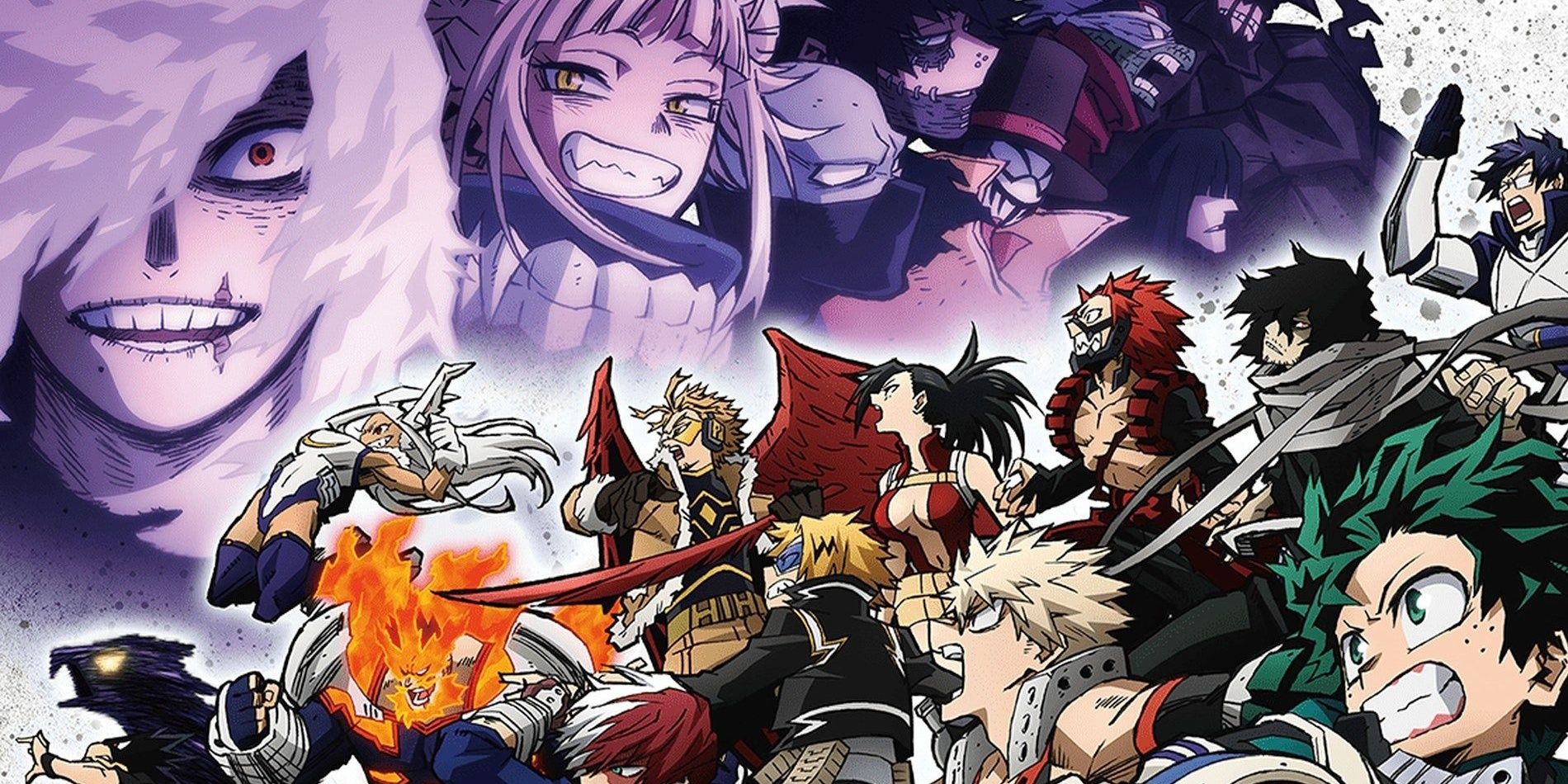The final battle for My Hero Academia's world has accomplished a lot more than providing spectacular fight scenes and writing out certain characters with their deaths or even their redemptions. The heroes' final fight against the mighty All For One has exposed the flaws and paradoxes of pro hero society, and worst of all, none of the heroes can provide a neat solution to these issues.
All Might wished to end the cycle of anger and violence as the symbol of peace, but not even he could pull that off. Hero society's paradoxical problems were too deeply rooted for one caped hero to solve, but the heroes are reluctant to just destroy the foundation of their society and give up on the idea of heroism altogether. Of all people, it's Stain the hero killer who has a solution — a simple and personal one that might help reshape the uncertain future.
How Stain Can Resolve The Pro Hero Paradox

For many chapters and episodes now, the story of My Hero Academia has revealed the inherent paradox of this future society's professional hero system. After the advent of Quirks, vigilantes ruled the day until the formal pro hero system took root, forming the foundation for all society. It's been that way ever since, and that system ensured that well-paid and well-supported pro heroes could always defend innocent people from violent criminals and natural disasters. Unfortunately, "hero" and "villain" are subjective terms that rely on each other for meaning, so society needed bad people for "good" to mean something. Pro heroes embodied virtues and traits such as honesty, obedience to the law, cooperation, and self-sacrifice, while anyone who acted differently or just didn't fit in was labeled a villain. There had to be a class of undesirable "others" for pro heroes to maintain their position, and that created the paradox.
Heroes defend society from villains, and villains, who face discrimination and rejection, fight back to change society to suit them better — the two parties go back and forth in a grim cycle. Pro heroes had to create their own worst enemies to exist, and those villains perpetuated this eternal back-and-forth. Even now, with protagonist Izuku Midoriya/Deku fighting to save the day with One For All's power, there are still no clear solutions from the heroes. People are suffering because of that paradox, and even if Deku and All Might win this final battle, that just perpetuates the cycle. A new solution is needed from an independent party, and that party is Stain. He was a villain at first, but he always admired true pro heroes who embodied absolute justice, and now Stain is an antihero with a vital message. His viewpoint has become more resonant, resolving the hero paradox by redefining heroes entirely.
Stain says that true heroes aren't those who uphold society's subjective and oppressive laws and norms about good vs. evil, but that heroes are those who will sacrifice anything they have to be of service to others. It's a more intimate definition, from one individual to another. Any society can have people who willingly help or save their fellow citizens, even if society isn't built on a rigid foundation of what heroes and villains should be. Stain's new definition may even serve as a compromise between the heroes and villains after this final battle. The heroes might agree to abandon the heroic society they upheld for so long, and in return, villains may agree to help other people rather than cause destruction and misery. Today's pro heroes and villains alike can be Stain-style heroes in any future they choose to build together — if they can set aside their differences.
Stain's Hero Definition Can Dissolve Barriers

The key trait of Stain's new definition of heroes is that it's purely personal. Stain's simpler hero definition resolves the pro hero paradox because it doesn't require society-wide definitions that create divided classes. The current pro hero system is a zero-sum game, because for the heroes to be winners, villains must be losers, and someone must be defined as a villain to make pro heroes mean something. Everyone wants to be in the winner class, either being or supporting pro heroes, and while no one wants to be in the loser class, some of them must end up there. Even some people with questionable morals or personality traits can be heroes, such as Enji Todoroki/Endeavor, and innocent civilians like Jin Bubaigawara may slide into villainy because they couldn't make it into the pro hero class. That barrier created a humanitarian crisis, but now Stain's philosophy could help break it down — at least in theory.
Stain's viewpoint reduces all of this to personal choices and actions, making it the most heroic humanitarian philosophy of all. Without societal classes of good vs. evil, all people are free to express their true selves outside rigid, abstract behavioral guidelines. The ego of slotting themselves and others into "good" or "evil" without room for nuance would be gone. Even if absolutely everyone became helpful heroes in that system and had no villains to contrast themselves with, it wouldn't be such an issue. Those individual heroes wouldn't need a formal villain class to be good or have motivation to act. It may end up as "if everyone's a hero, no one is," but at least no one is getting hurt. Things could stabilize into an average society with no good or evil, and avoiding evil is good enough. At least, Stain seems to think so.
Stain's Ideas Can Reconcile Heroes & Villains As Vigilantes

Vigilantism could make a resurgence if hero society adopts Stain's philosophy, and My Hero Academia's characters have mixed opinions on such a concept. Pro heroes reject vigilantes as dangerous wild cards, while actual vigilantes like Knuckleduster and Koichi believe they're proper heroes, minus official government sanction. To them, being a hero is about what's on the inside, expressing their humanistic desire to do good for others. There's always potential for vigilantism to go wrong, but then again, vigilantes can do some serious good and don't follow society's class-based rules of who's a hero and who's a villain. Vigilantes dodge the pro hero paradox with their individual altruism, and perhaps that can become the norm once again.
Today's pro heroes look back on the vigilante era with disdain, seeing it as symptomatic of a wild era where no one had fully figured out Quirks' place in society just yet. However, the age-old pro hero society is all but gone, and there's room to try something new — or perhaps something old with a fresh perspective. Today's pro heroes and villains have those definitions because of society's paradoxical laws and norms, with innately good people mixed into the villains' side and some bad apples on the heroes' side.
If Stain had his way and rebuilt society with his individualistic hero definition, today's pro heroes and villains could come together tomorrow, free of rigid labels so they can express their humanity together. That may be a recklessly optimistic view, but it's the only halfway viable route the heroes have to resolve the tragic paradox once and for all. It will take new ways of thinking, not a United States of Smash, to make that a reality.

